Yukon’s Future. Our Priorities. Our Plan.
The Yukon government is facing financial challenges. Over the past ten years Yukon government revenue growth of 1.7% per year in real dollars has not kept pace with spending growth of 2.5% per year.
Yukon’s Financial Advisory Panel was tasked to develop a series of DRAFT options to ensure a healthy financial future. The options have been prepared, with consideration of the input received from the early engagement process, and are ready for YOUR INPUT and FEEDBACK.
Below you will find FIVE discussions, pick the discussion(s) you are MOST interested in and contribute your response by answering the following questions:
- What pros, opportunities and benefits are associated with these options?
- What cons, challenges and limitations are associated with these options?
There is no limit to the number of discussions you participate in. Thank you for sharing your input on this important topic!
WHAT DO YOU WANT TO TALK ABOUT?
List of Discussions
- Options for SHORT Term financial health
- Options for MEDIUM Term financial health
- Options for LONG Term financial health
- Successfully Implementing Yukon government’s 4 Priorities
- Improving Yukon government Efficiency & Effectiveness
The Government of Yukon anticipates a significant shortfall of money (deficits) in the coming years, where the spending levels are higher than the anticipate revenue. The Panel has developed the following options to improve the currently forecasted budget deficits:
Option 1: Restrain Spending Growth
In order to achieve a balanced budget by 2020, the Yukon government could restrain spending growth by limiting spending increases to 1% per year. Alternatively, a more relaxed approach with spending growth capped at 2% per year would balance the territorial budget by 2022/23.
Option 2: Increase Government Revenue
The Government of Yukon could establish a territorial sales tax. A sales tax would address near-term fiscal challenges and would grow with the territory’s GDP. Each 1% increase in the sales tax would raise an additional $7 million per year in government revenues.
The revenue collected from a territorial sales tax could be redistributed through lowering personal and business tax. Additionally, visitors to the Yukon would contribute a substantial share of the sales tax revenue, perhaps in excess of 25 cents of each dollar collected, and therefore Yukoners overall would pay less tax.
Option 3: Combine New Revenues with Spending Restraint
There is an opportunity to combine both Option 1 and 2 where the outcome of a balanced budget would be achieved sooner as well as the costs of the change are distributed more equitably. The Government of Yukon could combine new revenues and spending growth by:
- Capping spending growth at 2% and introducing a 4% territorial sales tax in order to balance the territorial budget by 2020/21.
- Capping spending growth at 1.5% and introducing a 4% territorial sales tax in order to balance the territorial budget by 2019/20.
- Capping spending growth at 0.5% and introducing a 2% territorial sales tax in order to balance the territorial budget by 2019/20.
Option 4: Do Nothing
Doing nothing, as proposed by the Panel, is the final option that suggests there is an opportunity to accept the status quo and take no deliberate action. The Panel’s draft options highlight the Conference Board of Canada’s Territorial Outlook Economic Forecast which anticipates mining activity to grow and large scale activity to begin – both of which will have positive impacts on increasing revenue from 2018/19.
The Panel also notes the risk of doing nothing. If increasing revenue does not materialize, Yukon’s fiscal situation will become more difficult to manage at a later date.
What do you think?
- What pros, opportunities and benefits are associated with these options?
- What cons, challenges and limitations are associated with these options?
Comments





The following highlight challenges, opportunities and possible policy options for the medium-term.
Option 1: Index the Borrowing Limit to GDP
The Government of Yukon could negotiate with Canada to tie its borrowing limit to the Yukon economy. As the economy grows, so too does the territory's ability to manage debt and therefore so too should its borrowing limit increase. For example, a borrowing limit of 15% of GDP (gross domestic product) would be roughly equivalent to the current limit of $400 million in 2015 but would potentially increase to $485 million by 2020.
What do you think?
- What pros, opportunities and benefits are associated with this option?
- What cons, challenges and limitations are associated with this option?
Comments
Option 1: Shifting Taxes Away From Income & Towards Consumption
The Government of Yukon could consider a broad reform that shifts taxes away from income and productivity and towards consumption. Primarily, this would result from the introduction of a territorial sales tax and re-distributing this revenue through lowering personal and business tax.
Visitors to Yukon would contribute a substantial share of the HST revenue, perhaps in excess of 25 cents of each dollar collected, and therefore Yukoners overall would pay less tax. This will improve the efficiency of Yukon’s economy, provide funds to enlarge the cost-of-living credit recommended under the carbon tax plan, dampen the volatility of government revenue, lower its reliance on mining sector activity, improve the predictability of future government revenue, enhance the incentive to work, to save, and to invest, and better extract value from visitors to the Yukon.
Option 2: A Savings Fund
The Government of Yukon could establish a savings fund that would receive deposits in years where tax revenues come in above a set threshold and could withdraw from the fund in years where revenues come in below that threshold. This could dampen volatility of government revenue due to unexpected swings in mining sector activity.
What do you think?
- What pros, opportunities and benefits are associated with these options?
- What cons, challenges and limitations are associated with these options?
Comments
Priority 1 Our people-centred approach to wellness helps Yukoners thrive.
| Consideration | Why do this? |
|---|---|
|
Undertake comprehensive review of the healthcare sector |
This review would provide a complete understanding of the factors driving healthcare costs and the quality of outcomes being delivered to Yukoners in the current system. Additionally, this would serve as a basis for future improvements. |
|
Support innovations in healthcare delivery |
This consideration aligns with the intention of increasing public sector efficiencies. As a significant portion of the budget is allocated to healthcare, this is an important area to focus on. Examples of such innovation could include development of mobile labs or clinics supporting around the clock diagnostic work or creation of electronic medical records. |
|
Consider “co-pay” arrangements in healthcare |
Co-pay refers to implementing income-related cost sharing of healthcare costs. There is an opportunity to examine the potential for low-impact changes to co-pay arrangements in areas like pharmacare (drug costs). |
|
Invest in social spending |
There is evidence that incremental investments in housing and other aspects of social spending have a much bigger impact on health outcomes than a marginal dollar spent on health care facilities and personnel. This consideration suggests reallocating tax dollars from traditional health spending (facilitates & personal) to social spending (housing or other key indicators of health & wellness). |
|
Focus on supporting adult functional literacy challenges |
The Education Department could assess the outcomes from current approaches to dealing with adult literacy challenges and consider program design changes to improve those outcomes. |
Priority 2 Our strategic investments build healthy, vibrant, sustainable communities.
| Consideration | Why do this? |
|---|---|
|
Use proposed savings fund as source for social infrastructure |
Budget surpluses would be stored in this specific fund and could be allocated to support the development of social infrastructure such as spending on community facilities and meetings halls and therefore not compete with economic infrastructure revenue sources. |
|
Introduce working income tax credit |
If Yukon government was to proceed with implementing a carbon and/or consumption tax, the revenue could be recycled in several ways. Specifically, Yukon government could implement a working income tax credit instead of a cost-of-living credit as this supports more equitable distribution of benefits. |
Priority 3 Our strong government-to-government relationships with First Nations foster reconciliation.
| Consideration | Why do this? |
|---|---|
|
Assess the educational outcomes for aboriginal students |
For economic and social reasons as well for the advancement of reconciliation, it is critical to assess the educational outcomes for aboriginal students and to craft, with the First Nations communities and the federal government, ways to improve those outcomes. |
|
Consider joint ventures, including public-private partnerships, with First Nations governments |
For future infrastructure projects, the Government of Yukon could consider joint ventures, including public-private partnerships with First Nations governments. With potential funding from the federal government’s PPP Canada Fund, the cost to the Yukon taxpayers can be lowered for desirable projects. |
Priority 4 Our diverse, growing economy provides good jobs for Yukoners in an environmentally responsible way.
| Consideration | Why do this? |
|---|---|
|
Reduction in business taxes |
The reduction of business taxes directly impacts economic growth by encouraging capital investment and improving income distribution by moderating the burden on workers’ compensation. |
|
Consider use of public-private partnerships [P3] |
Consider the use of public-private partnerships [P3] using the federal government is a potential funding partner in such joint ventures with the private sector through PPP Canada and/or the new Canada Infrastructure Bank [CIB]. |
|
Evaluate business support programs against outcomes |
Consider evaluating the cost of business support programs to the revenues generated from business income taxes to determine their effectiveness or need for improvement. |
What do you think?
- What pros, opportunities and benefits are associated with these options?
- What cons, challenges and limitations are associated with these options?
Comments
These suggestions support the Yukon government in considering how to improve efficiency and effectiveness of its policies especially as they relate to the four categories of current priorities. It should be noted that much more analysis would be necessary to firm up specific recommendations.
| Consideration | Why do this? |
|---|---|
|
Focus on evaluation of outcomes in government programs and services |
Yukon government should, as rigorously as possible, assess the programs it delivers as well as the processes used to do so. Particular attention needs to be paid to policy outcomes rather than to the allocation of inputs that has historically been the bulk of the analysis in program evaluation. |
|
Contracting out services and/or collaborating with other governments |
The Territory should consider the potential benefits of either contracting out to or collaborating with other governments on the provision of such things as IT and analytics, on standard processing activities [e.g., payroll and standard HR services] and on common purchases [e.g., drugs, alcohol, hospital equipment]. The purpose would be to lower operating costs and some capital expenditures. |
|
Improve efficiency of YG operations and programs |
This would be the start or basis for possible “structural” changes in policy. The following are broad approaches for consideration: Internal operational changes such as:
|
What do you think?
- What pros, opportunities and benefits are associated with these options?
- What cons, challenges and limitations are associated with these options?
Comments
Priority 1: Our people-centred approach to wellness helps Yukoners thrive.
Priority 2: Our strategic investments build healthy, vibrant, sustainable communities.
Priority 3: Our strong government-to-government relationships with First Nations foster reconciliation.
Priority 4: Our diverse, growing economy provides good jobs for Yukoners in an environmentally responsible way.
What would be the same? What would be different? From your perspective, what would need to happen or change to make it so? See Details & Sample Responses here.
Comments




We have many goals and priorities to build our bright future as well as finite resources to achieve them. Review the following information about the current state of Yukon government finances as well as possible fiscal tools to change the state and direction.
- What advice or guidance would you give to the Yukon Financial Advisory Panel regarding what they consider as they work to identify options for a healthy financial future?
- What stands out for you as you review the current financial state? From your perspective, what key considerations or criteria should guide our financial planning?
Comments

This is an important conversation and opportunity for Yukon government to engage with all Yukoners. We are interested in continuous improvement and ongoing evaluation of what’s working and what could be improved over the course of this process.
- When the Yukon Financial Advisory Panel is engaging with Yukoners, what will ensure the process is meaningful?
- What is working well in this engagement process?
- What would you like considered as the engagement process progresses?
Comments





